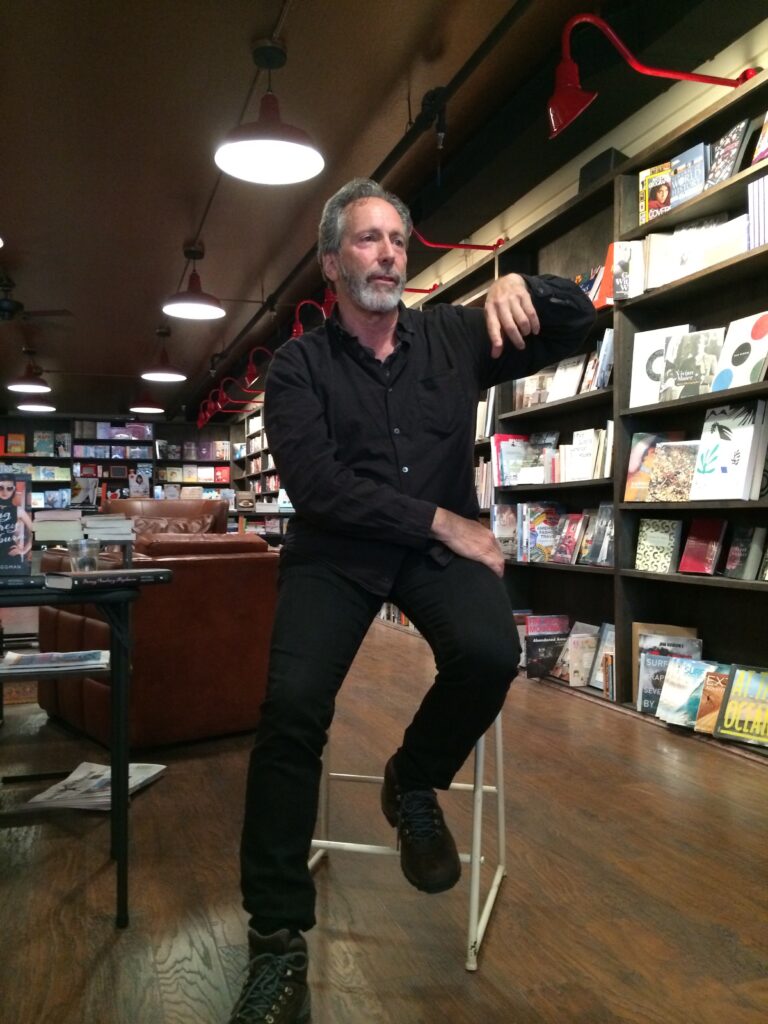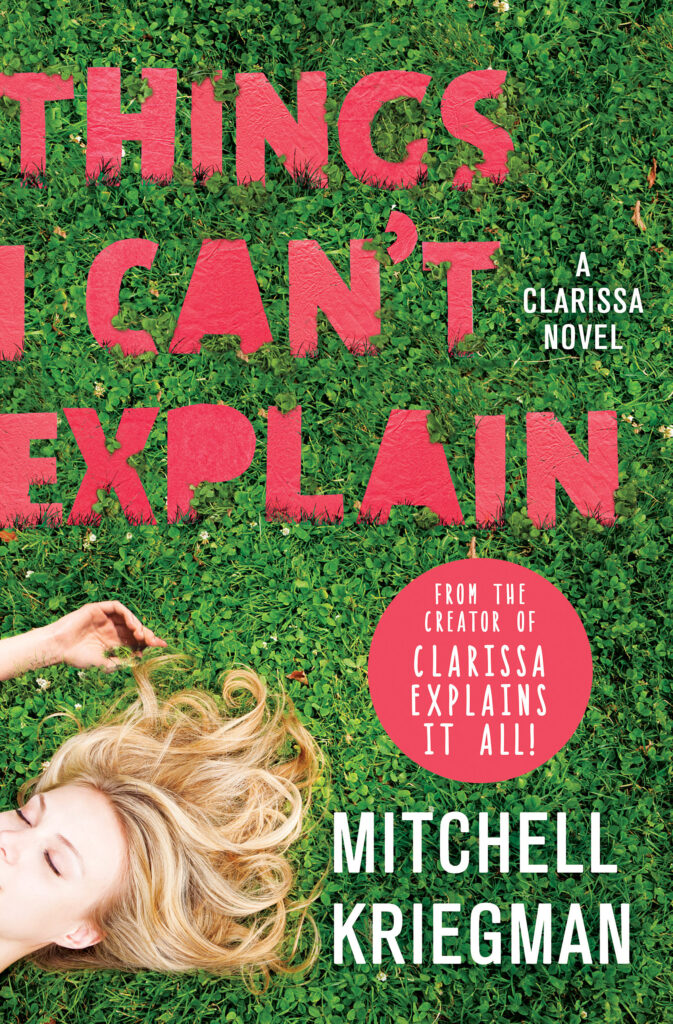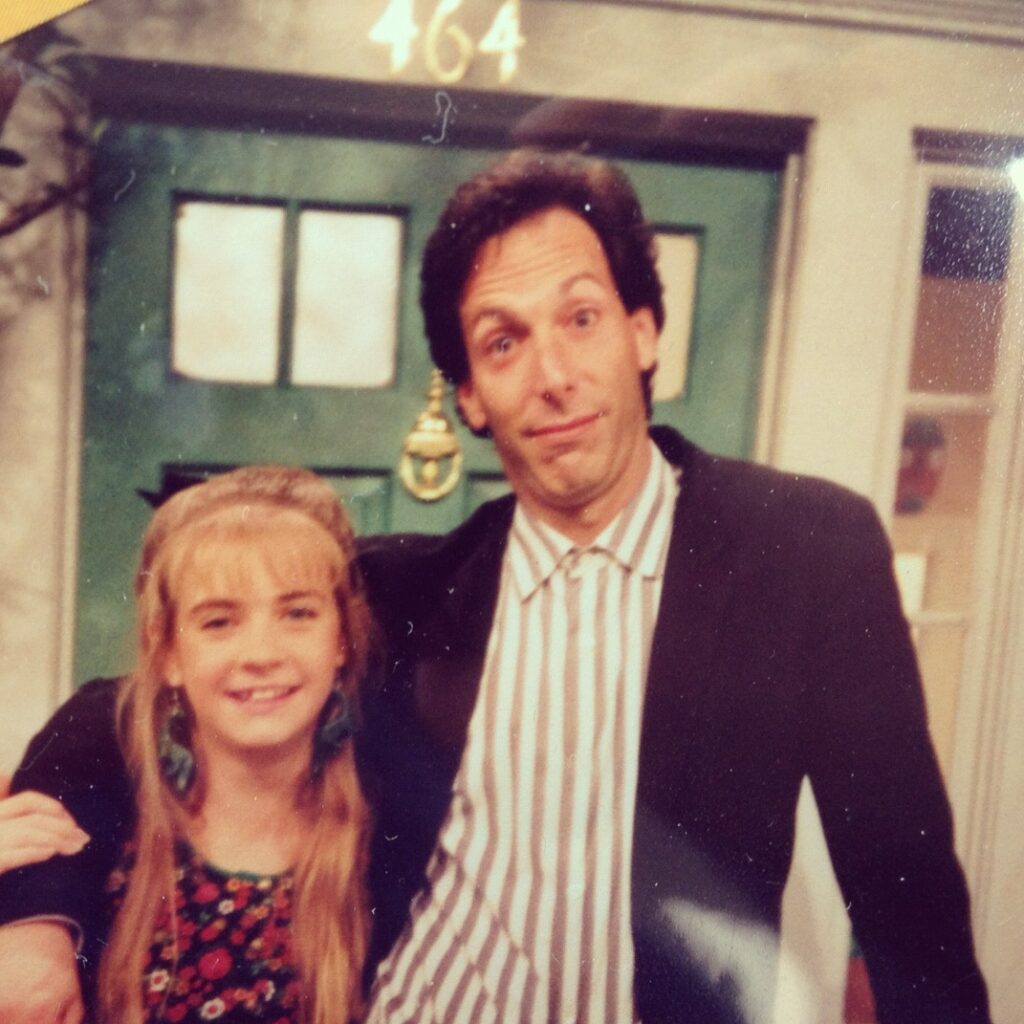Mitchell Kriegman On Writing
I first met Mitchell Kriegman in the offices of the Montecito Journal. He was sitting at the front desk, pitching a story to our publisher, Tim.
“You know who that is, don’t you?” Tim asked as Mitchell left the room. I shook my head. “Mitchell created the TV shows Clarissa Explains It All, Ren & Stimpy, Rugrats, Doug…” As Tim listed what I soon would learn to be a shortlist of Mitchell’s accomplishments, all I could say was, “And he writes for us?!” The man who created a heroine of my childhood, Clarrisa Darling, was also writing for the Montecito Journal? Hell yeah.
Eventually, I got to know Mitchell as a straight shooter, an off-the-cuff storyteller, and a super approachable guy that happens to have a loooong resume in his back pocket. After I interviewed Mitchell about his recent film archive donation to the University of Santa Barbara, I hit him up for some writing tips as any writer would and should.
Without further ado…
Mitchell Kriegman & The Writing Process

Let’s get down to brass tax: what’s your writing process?
I really try to avoid anything like the blank page and the first draft, which is the drag of every writer. Right? I mean, that is the big kind of gremlin of being a writer is that you’re always done in by the blank page.
What’s your inspiration?
I believe that inspiration is overrated. I think that inspiration is not the most important thing to write.
I think persistence is rewarded. And so, I believe in mechanically getting something on the page or getting your ideas on the page.
I happen to like outlining because it’s very fluid, and it doesn’t have many requirements. Let it pour out, and you tell the story, but also have some dialogue.
Depending on whether it’s a book or a screenplay or whatever, just pour your heart out into an outline and work on that outline until it feels like it’s like the equivalent in an animation of the script. Because there’s always work on a script.
Just work endlessly on the outline until it’s the richest, full thing you can imagine that you really want to do. And then you take it and you kind of format it.
If it’s a novel, you format it into chapters. Or, format it into a screenplay, and it’s just completely practical.
So, you’ve gotten down whatever thoughts you had. Let’s face it, whatever thoughts you had is where it’s going to be, but (now) you have a beginning, middle, and end.
You’re never working without a beginning, middle, and end. And then you start little-by-little, turning it into the screenplay or the novel. If you have a paragraph of what that chapter is, followed by a paragraph for the next chapter, then your job is to sit down and just write it, you know?

What are your thoughts on writer’s block?
I really have this perception about writer’s block and how you feel you can’t write.
My perception about it is that I believe that Tolstoy had a better version of War and Peace than what he wrote. I believe that Flaubert had a better version of Madame Bovary than we saw. And what I mean by that is that the thing in your mind – which I guarantee is true for any human being, even Superman or woman writers – you have an idea, and you can never completely achieve the idea in your mind. So, if you realize that, just do the best version you can of that thing you imagine and stop worrying about reaching that perfection.
What’s the difference between writing for TV, writing books, and journalism?
Writing novels is what I think is the richest experience. That’s what I always wanted to do, and it took so long for me to get to do that after I was told I’d never be a writer. So, when I finally got to do it, I really did love it. I do love it. I just love writing it. I love those bigger, longer pieces where you get immersed in a world.
Writing TV is fun because it’s fast and instant, and it has to happen in a certain amount of time. I’ve even perfected it to the point that once I had a TV show, I wrote in the same amount of time it took to watch it.
Writing screenplays are, I think, quite difficult because I mean, I’ve written a lot and I liked them, but they’re not a real form. If you really look back in screenplays’ history, it started as a risk of props, and action, and locations.
There’s really a great study of this – the original screenplays were done by accountants because they just needed a list (of costs). Literally, accountants used to say to the guys that produced Keystone Cops movies, “Okay, I need to know what products you’re using for the accounting, what stunts you’re doing and… just write something down, describe it.”
And that became what a screenplay is. And so, it’s really not a great form. It’s not satisfying. It has to be written as if to sell it. But in the end, when you write and finish a screenplay, you don’t have anything. You don’t have a movie, and you don’t have a novel, you have a frigging screenplay, which is like, what is that if the movie doesn’t get made, right?
I think writing journalism is like taking heroin, in a good way. Because what happens is that you do this intense writing in a tiny timeframe, and you have to deliver it. You have a huge amount of information, and it has to be instantly engaging and hold your attention the entire time. It’s a rush. It’s like just an incredible rush to write. And if it’s written well, it’s an incredible rush to read. And, and then when you’re done, it’s like, you’re spent, you’re exhausted, and you have to do it over again. So, all your satisfaction comes from the rush. It’s a crazy form, I think.
What was your favorite Mitchell Kriegman show? Please share in the comments below!
FOR MORE WRITING TIPS:
3 EASY STEPS TO GET YOUR WRITING OR PRODUCT PUBLISHED


I am looking to write a book. I have read your article and this is perfect to write a book. Thanks for sharing it.
Hi, Anthony! I’m so glad you’ve found this helpful. Good luck with your writing; how exciting!